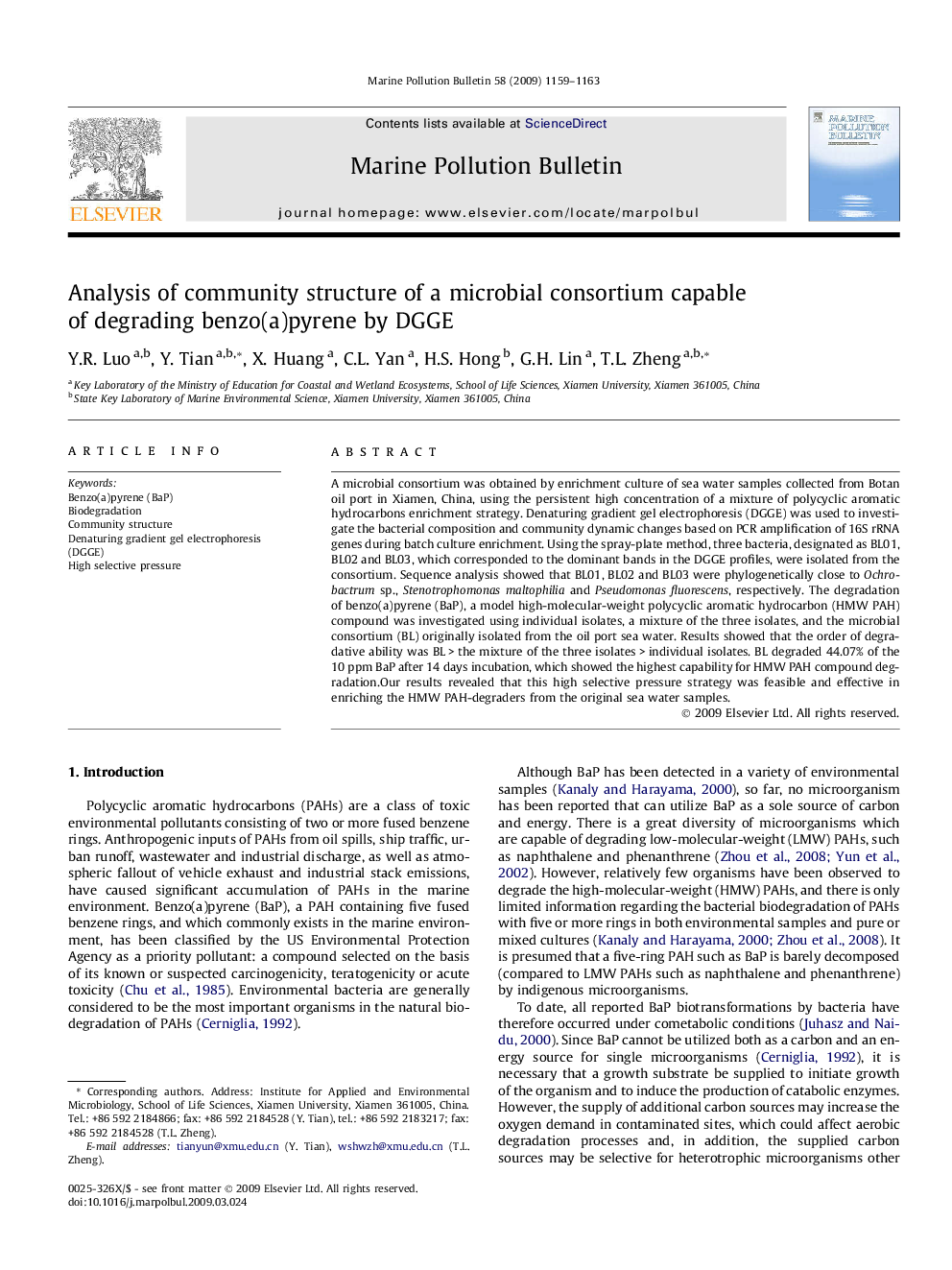| Article ID | Journal | Published Year | Pages | File Type |
|---|---|---|---|---|
| 4476986 | Marine Pollution Bulletin | 2009 | 5 Pages |
A microbial consortium was obtained by enrichment culture of sea water samples collected from Botan oil port in Xiamen, China, using the persistent high concentration of a mixture of polycyclic aromatic hydrocarbons enrichment strategy. Denaturing gradient gel electrophoresis (DGGE) was used to investigate the bacterial composition and community dynamic changes based on PCR amplification of 16S rRNA genes during batch culture enrichment. Using the spray-plate method, three bacteria, designated as BL01, BL02 and BL03, which corresponded to the dominant bands in the DGGE profiles, were isolated from the consortium. Sequence analysis showed that BL01, BL02 and BL03 were phylogenetically close to Ochrobactrum sp., Stenotrophomonas maltophilia and Pseudomonas fluorescens, respectively. The degradation of benzo(a)pyrene (BaP), a model high-molecular-weight polycyclic aromatic hydrocarbon (HMW PAH) compound was investigated using individual isolates, a mixture of the three isolates, and the microbial consortium (BL) originally isolated from the oil port sea water. Results showed that the order of degradative ability was BL > the mixture of the three isolates > individual isolates. BL degraded 44.07% of the 10 ppm BaP after 14 days incubation, which showed the highest capability for HMW PAH compound degradation.Our results revealed that this high selective pressure strategy was feasible and effective in enriching the HMW PAH-degraders from the original sea water samples.
